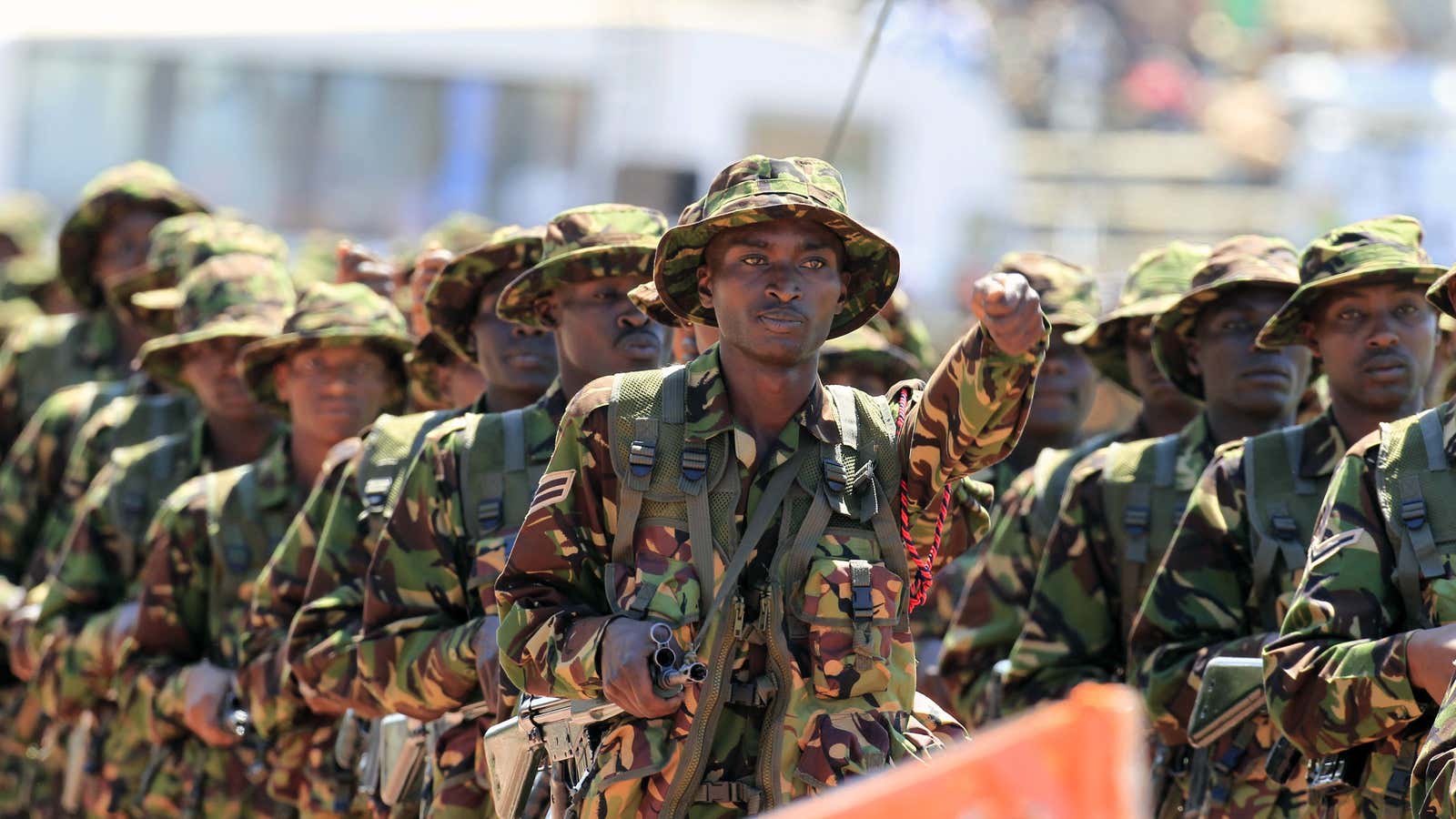Subdued prices for oil and other key commodities in recent years has started to filter through to Africa’s military budgets. Defense spending fell to $37.9 billion in 2016 from $50.2 billion in 2014. This marks the second consecutive year of decline in spending, after 11 straight years of increases, a new report from the Stockholm International Peace Research Institute found.
The Institute also recorded a drop in military spending in Central America, the Caribbean, and South America, while defense budget allotments increased in Asia, Europe, and North America.
Until recently, Africa has been home to some of the world’s fastest-growing economies. Political stability and demand for commodities attracted investors and supported the emergence of tech-savvy entrepreneurs. But the crash in recent years in prices for commodities like oil, gold, diamond, and timber has slowed this momentous growth. Many economies are also facing mounting pressure from the effects of violent extremism and an unprecedented drought and famine affecting millions.
In sub-Saharan Africa, cuts in military spending were most dramatic in Angola. The top oil producer has the second largest military in Africa after Algeria, and spent $6.1 billion on it in 2013. That figure dropped to $3.2 billion in 2016, largely due to falling oil prices. South Sudan, once East Africa’s biggest spender on defense, cut its budget by more than half to $525 million last year.
Algeria increased its budget just 2.3% last year compared to the previous year, spending $10.6 billion, its lowest level (pdf) since 2007.
On the whole, Africa has become more peaceful in recent years, and its military spending is often a signal of something other than an attempt to shore up national security from outside forces. In many cases, it’s the result of an attempt to stifle internal dissent. In others, it’s a response to internal strife caused by extremism, such as with Mali and Kenya, who have increased spending over the last few years to help with their fight against armed Islamist extremists.
It can also be read as an attempt to project power. Botswana, which has no threat of extremism and has never experienced a civil war, spent $536 million upgrading its defense infrastructure last year, compared to $384 million the year before.
SIPRI cautioned that a comprehensive and completely accurate overview of military spending on the continent might not be possible. Defense spending in Libya was not made public, for example, and the data didn’t reflect the billion of dollars in bilateral military aid provided to countries like Egypt and Ethiopia by its allies. Military budgets also continue to be plagued by corruption allegations, raising questions about the reliability of published spending figures. For instance, Nigeria’s president Muhammadu Buhari ordered the arrest of the country’s former national security advisor in 2015 for allegedly pocketing up to $2 billion from fraudulent arm dealings.
